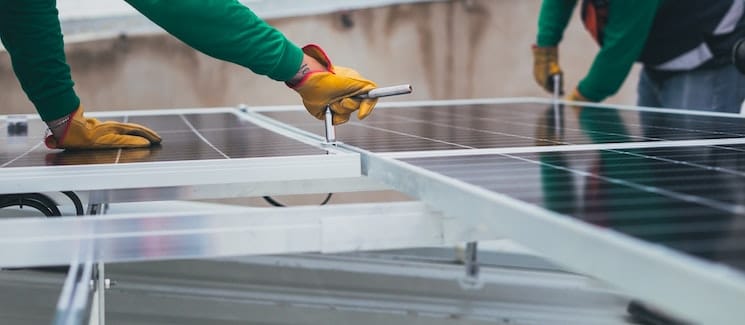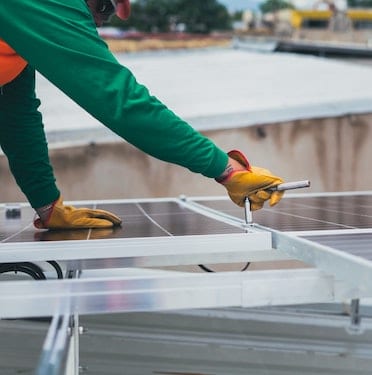
The manufacturing industry has been the focus of much of the larger environmental sustainability conversation. That’s because manufacturing accounts for as much as 23% of greenhouse gas emissions as companies burn fossil fuels to create products out of raw materials. That’s not including the huge amount of pollution generated from the transportation of these materials. We are now entering a new age of awareness in this field whereby manufacturers are now expected to help provide the necessary leadership to make a change and plot a new path towards what could become a “golden age” of environmentalism in manufacturing.
For discrete manufacturers, pivoting to sustainable processes may sound like a good way to appease a vocal element of online consumers, but it is so much more than that. Corporations in the digital age are under a public microscope. With widespread demands for better practices, sustainability is no longer optional. Manufacturers are now being held to greater accountability than ever before. Fortunately, new technological advances are making this change possible.
Sustainability is No Longer an Option: It’s a Requirement
First, let’s define what sustainability means. It’s more than just a buzzword. True sustainability isn’t just about the environment, although that’s one of its three core pillars. Instead, it focuses on the balance between environment, economic factors, and the people to whom all industries should inevitably support and serve.
With this in mind, what makes now the time for manufacturers to shift their practices? After all, hasn’t the pandemic been hard enough on the industry?
This is certainly true. COVID-19 was particularly devastating on factories especially in the early months as many facilities around the world were forced to close. With an estimated 75% of global businesses being dependent in one way or another upon China for the procurement of raw materials, a 2-3% component price jump for these materials due to shortages or shutdowns could have a dramatic impact on production around the world.
But if anything, environmentalism in manufacturing has taught us all a lesson in what it means to be a sustainable manufacturer. Relying on singular sources for components and materials — especially from another nation — does not support economic success nor environmental benefits since it maximizes the distance parts and products need to travel. Further, this type of strategy is simply too risky today.
Meanwhile, similar reliance on fossil fuels has driven costs up for manufacturers amid surging gas and oil prices across the globe. This reliance is costly, unsustainable, and forces manufacturers to be reactive rather than intentional in their processes. When you think of the situation in this context, the following statistics make renewable and sustainable investments that much more appealing:
- 90% of consumers said they were equally or more concerned about sustainability even after the pandemic emerged.
- 51% of investors believe it’s important for companies to focus on environmental, social, and governance (ESG) factors even if it means lower earnings per share.
- The cost of renewable energy has fallen by 85% in a decade, making the majority of these energy sources cheaper than fossil fuels as of 2020.
This data illustrates that the time is right for sustainable investments as they relate to the environment, the economy, and the human race caught in the crossfire. With this in mind, manufacturers must take visible, traceable steps in working with renewable energy engineers to make their businesses more sustainable. These engineers can help mitigate companies’ reliance on unsustainable practices and can even help integrate independent grids of clean energy.
Investments in renewable systems are past due, as the digital world brings manufacturing activities and effects onto a global stage.
Read more in this article, How Your Value Chain Directly Impacts an Environmental, Social, and Governance Program.
Digitalizing Environmentalism in Manufacturing Brings Accountability
Love it or hate it, the internet has created a culture of accountability. Through it, the public can obtain receipts for everything we do physically and virtually. Any concerned citizen on Twitter, Facebook, or any other media platform can drag the reputation of an irresponsible company through the mud and end up hurting demand and revenues for their products.
As we face broad public scrutiny, a renewed focus must be placed on ESG issues, starting with those consumers care about most. This requires a combination of both authentically sustainable practices and honest messaging about the steps you’re taking toward more socially, environmentally, and economically responsible practices. Even civil nuclear engineers must communicate clearly and honestly about the safety and necessity of nuclear energy to overcome the challenge of public acceptance of this resource.
Environmentalism in manufacturing is advancing with manufacturing technology that is making it easier for companies to keep an eye on their emissions, waste, and materials. Artificial Intelligence is one such tool that can now be applied to data generated by sensors or through the Industrial Internet of Things (IIoT). With this intelligence, production facilities can better evaluate every aspect of their performance and create actionable, sustainable improvements.
For instance, millions of gallons of water are wasted through leaks and inefficient business practices. This impacts the global water supply and can devastate ecosystems. However, IIoT sensors can help workplaces conserve water by measuring and detecting leaks through smart building fixtures. Information systems can then collate this information and allow manufacturing managers to retrieve actionable insights from a centralized system.
With the prevalence of industry-changing technologies like these, manufacturers can automate compliance with sustainable standards increasingly demanded by the public. This means that business leaders no longer have excuses to fall back on. The tech is here, the demand is growing, and the planet faces warming temperatures that could devastate living conditions for millions of people.

